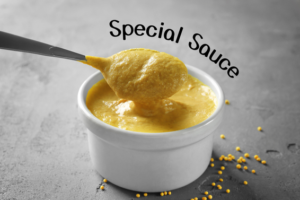
When most of us think about fitness, the first images that come to mind are weights, yoga mats, running shoes, or protein shakes. We imagine lifting heavy, running faster, or pushing our limits in the gym. But there’s one simple thing that quietly decides how well you’ll perform: hydration.
It may sound too ordinary—after all, it’s “just water,” right? But here’s the truth: water is the one thing your body cannot train without. Your muscles need water to move with ease, your heart needs it to keep blood flowing, and your brain needs it to stay sharp and focused. Without enough of it, your workout feels like dragging yourself through mud.
Think about it. Have you ever started a workout full of energy, only to feel your body slow down halfway? Your throat dries, your head feels heavy, and suddenly even basic exercises seem harder than usual. That isn’t just “tiredness”—it’s your body asking for water. Dehydration sneaks in silently and steals away your strength.
The amazing part is that staying hydrated is one of the easiest fitness hacks ever. You don’t need fancy supplements or expensive drinks. Just smart habits, small reminders, and a little awareness. With the right hydration, you’ll notice your endurance improves, your recovery feels quicker, and your overall workout becomes more enjoyable.
In this blog, I’ll take you step by step through 7 simple and practical ways to stay hydrated while working out. No science-heavy words, no complicated rules—just clear, everyday tips you can follow whether you’re at the gym, on a run, or even doing yoga at home.
Why Hydration Matters in Workouts
- Before we jump into the “how,” let’s first look at the “why.” When you exercise, your body sweats to stay cool. When you sweat, you don’t just lose water—you also lose key minerals like sodium and potassium.
- Dehydration = low energy → Without replacing this fluid, your body feels weak. You may face cramps, dizziness, or even nausea.
- Hydration = better performance → Drinking enough water helps your muscles stay strong, your joints stay smooth, and your heart stay steady.
Simply put: water is like fuel for your body’s engine. Without enough fuel, the engine slows down.
1. Drink Enough Water Before You Start
A common mistake is waiting until thirst hits during exercise. By then, dehydration has already begun.
What to do:
- Try drinking a glass or two of water roughly 30–60 minutes before exercising.
- Don’t gulp it down—sip slowly so your stomach doesn’t feel heavy.
💡 Tip: If you often forget, set a reminder on your phone that buzzes 45 minutes before gym time saying “Hydrate Now!”
Imagine starting a 5K run with your body half-empty on water. It’s like trying to drive a car on low fuel. That’s why pre-hydration is your secret weapon.
2. Carry a Reusable Water Bottle
This might seem too basic, but it’s the most powerful habit. Keeping your bottle nearby makes sipping water feel effortless.
Why it works:
- A water bottle acts as a visual reminder.
- You don’t have to wait for a gym break—you can sip anytime.
- Reusable bottles are eco-friendly and healthier than plastic bottles.
💡 Extra Tip: If plain water feels boring, add slices of lemon, cucumber, or a few mint leaves. Not only does it taste refreshing, but it also encourages you to drink more.
Think of your water bottle as part of your workout gear—just like your shoes or headphones.
3. Follow the “Sip, Don’t Chug” Rule
It’s tempting to gulp down half a bottle at once, especially when you’re thirsty. But too much water at once can make your stomach feel bloated.
Better approach:
- Take small sips every 10–15 minutes during your workout.
- Aim for around 100–150 ml each sip session (just a few mouthfuls).
💡 Example: During a 1-hour gym session, sip 5–6 times instead of waiting for the end.
Remember, your body absorbs water better when it’s taken in small amounts regularly rather than in one big rush.
4. Eat Water-Rich Foods
Water isn’t the only way to hydrate—fruits and veggies can help too. They’re nature’s juicy hydration boosters.
Great hydrating foods include:
- Watermelon 🍉 (92% water)
- Cucumber 🥒
- Oranges 🍊
- Pineapple 🍍
- Strawberries 🍓
- Grapes 🍇
- Lettuce 🥬
💡 Quick idea: Have a bowl of watermelon or cucumber slices after your workout. Not only will it hydrate you, but it will also give you vitamins and antioxidants that help recovery.
5. Replenish Electrolytes
Sweat doesn’t just take water out—it also removes electrolytes. Without them, you can face cramps or fatigue.
Ways to restore electrolytes:
- Drink coconut water—a natural source of potassium.
- Make a simple DIY drink: mix water, a pinch of salt, and a squeeze of lemon.
- Use electrolyte tablets or powders if you’re doing long or intense training (like running a marathon).
💡 Important: Be careful with sports drinks—they usually contain a lot of added sugar. Stick to natural or sugar-free options unless you’re into heavy training.
6. Listen to Your Body
Everyone’s hydration needs are different. Your weight, workout intensity, and even the weather affect how much water you lose.
Warning signs you’re dehydrated:
- Dry lips or mouth
- Unusual tiredness
- Headaches during or after workouts
- Muscle cramps
- Dark yellow urine
💡 Tip: A simple test is the urine color test—if your pee is pale yellow, you’re hydrated. If it’s dark, you need more fluids.
7. Stay Hydrated Even After Your Workout
Hydration isn’t just “during” exercise—it’s also what happens after. Recovery continues for hours, and your body still needs water.
Post-workout hydration tips:
- Drink at least 1 glass of water within 30 minutes of finishing.
- Have a small snack like fruit, yogurt, or a handful of nuts, and keep drinking water regularly all day—not only during your workout.
💡 Extra idea: Herbal teas like chamomile or green tea can also count toward hydration (just don’t overdo caffeine).
FAQs
Q1. How much water should I drink daily if I work out?
On average, 2.5–3 liters for men and 2–2.5 liters for women. Add more if you sweat heavily.
Q2. Is cold water bad during workouts?
No, cold water is fine—it can even help cool your body faster.
Q3. Can coffee or tea count as hydration?
Yes, but in moderation. Too much caffeine can dehydrate, so balance with plain water.
Q4. Do I need sports drinks for a 30-minute workout?
No. Sports drinks are only useful for long, sweaty sessions (over 60–90 minutes).
Quick Hydration Checklist
- ✅ Drink water 30–60 min before exercise
- ✅ Carry a reusable bottle
- ✅ Sip every 10–15 min
- ✅ Eat water-rich fruits & veggies
- ✅ Replenish electrolytes if sweating a lot
- ✅ Watch for dehydration signs
- ✅ Drink after workout and throughout the day
Final Thoughts
Hydration may not sound as fancy as protein powders or gym supplements, but it’s the true secret weapon of fitness. Without enough water, your muscles struggle, your focus fades, and your progress slows down.
The beauty is—it’s simple. Just keep sipping, listen to your body, and fuel yourself with water and water-rich foods.
So, the next time you tie your shoelaces or roll out your yoga mat, make sure your water bottle is by your side. Trust me, your body will thank you with more strength, energy, and faster recovery.







